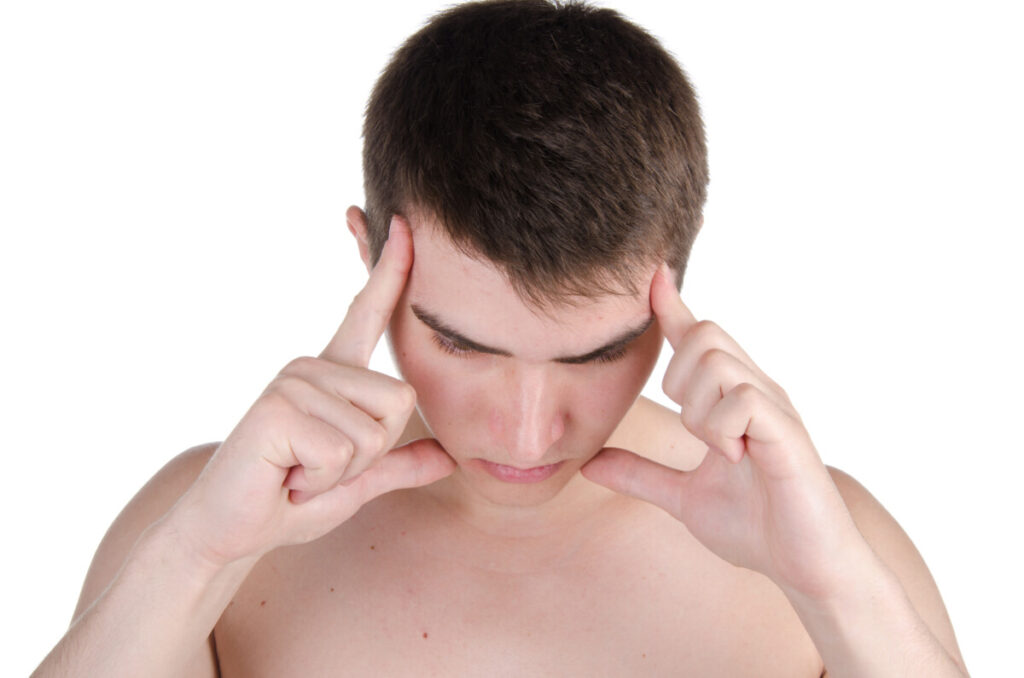 Gay Men, COVID-19, and Avoiding the Pitfalls: Substances, Lethargy, and Despair
Gay Men, COVID-19, and Avoiding the Pitfalls: Substances, Lethargy, and Despair
Identifying and Coping with the “Pitfalls” in COVID-19
As I continue online therapy and coaching sessions in my practice at GayTherapyLA as a gay men’s specialist for individuals and couples (over 28 years in 2020), I’m seeing the effects of COVID-19 on guys in California, the United States, and even abroad, as I provide sessions online to gay male individuals and couples the world over.
I hear about the usual challenges they face, but these are wrapped up in the context of the additional stressors related to the medical, social, and economic impacts of COVID. Many months into this pandemic, the adaptation and the coping strategies I hear about are taking on various “colors” from people who are establishing a “temporary new normal” in their personal and working lives, and doing relatively well, versus others who are either in crisis or trying to avoid getting into one imminently.
Overall, I see three problem areas: 1) the relationship to substances (such as recreational drugs, including legal marijuana and alcohol, or even “comfort foods” that may have minimal nutritional value); 2) lethargy, as the prolonged pandemic evokes a weariness as the crisis endures; and 3) despair, that motivation is sapped and that goals, dreams, aspirations, and desires are set aside in favor of a minimal, day-to-day, survivalist coping.
Let’s look at each of these, in turn, and some suggestions for their adaptive coping responses to reduce the harm that these can cause:
Substances

I have long held that, unlike some therapists, I am not a purist when it comes to drugs and alcohol (my previous article on gay men and alcohol is here, and my article on substance use in the context of gay male relationships is here). I do not espouse (the somewhat religious-inspired) Prohibitionistic and moralistic view of the American federal government that “all drugs, are all bad, for all people, in all circumstances.” While not exactly health food, and certainly not for everyone, there can be a time and place for many so-called “illicit” drugs that people in general, and gay men in particular, have used for generations the world over (marijuana, cocaine, “magic” mushrooms, MDMA/Ecstasy/Molly, LSD, etc.), and for many in my observation (the world over), there can be relatively safe, occasional use, if (and that’s if) Harm Reduction measures are taken. The one that stands out of these as an exception to this is “criggstal medampetameen (I’m altering the spelling because many oneline services don’t allow this term to be written out the way it’s usually spelled); as “liberal” as I am about the topics of recreational drugs, I (along with many therapist and physician colleagues) draw the line at that one (one of my articles on gay men and crystal meth recovery is here). In my 28 years of practice, I can honestly say I’ve never seen “casual” use of crystal meth be anywhere near benevolent. It’s in class by itself, and it’s sometimes awe-inspiring of how destructive it can be.
So while the COVID pandemic might pressure some people to use more recreational drugs while stuck at home on public health orders to stay put, the temptation to indulge more is a fraught one. Over-drinking is tough on the body, and is associated with lower functioning, poor work, low-quality sleep, weight gain, and mood detriment, despite all the “wine jokes” about 2020. Same with smoking too much pot, or any of the others. Some important questions to ask yourself about the role of substances during COVID can include:
- Am I using more recreational drugs (including alcohol) at this time?
- If so, by how much?
- What is the effect of doing this? Does doing it make me really feel better? In the short term, in the long term, or both?
- Where am I getting my supply? Am I testing any substances such as cocaine, “molly” (MDMA), or crystal meth with chemical strips to ensure they aren’t adulterated with possibly-lethal fentanyl? (This has been a problem in Los Angeles in recent years, including some fatalities.)
- Who am I using with? Is it enhancing, or detracting, those social relationships?
- Are there any alternatives (again, Harm Reduction) that would provide a sense of distraction, relaxation, or amusement that the substances do?
- How does this use relate to my own history? Am I relapsing to a previously state of a “bad place” in relation to substance(s)?
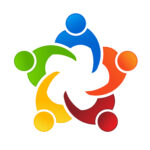 For guys who are already in recovery, think about how the current COVID pandemic might be a stressor that could pave the way to relapse.
For guys who are already in recovery, think about how the current COVID pandemic might be a stressor that could pave the way to relapse.
- Am I connected to peers in 12-Step programs, or 12-Step alternative programs, online?
- Do I have support from an AA sponsor to discuss how the COVID era is stressing me, specifically, as an individual (as opposed to society at large)?
- Am I connected to therapy groups, or individual therapy, to discuss the Cognitive-Behavioral aspects of identifying and responding to triggering emotional states, and identifying alternative behaviors?
- What are my triggering emotional states? Fear of becoming sick? Fear of losing my job? Fear of losing important social relationships? Despairing that the pandemic will never end? Losing a sense of purpose on why maintaining sobriety is important? Getting into a, “Oh, the hell with it; why bother?” state of mind?
- What are the people, places, and things related to the COVID pandemic that become triggers for me? Is it the loss of social relationships like colleagues at meetings? Is it not being able to meet inside meeting rooms? Is it the lack of group fellowship? Is it the sense of confinement that I feel with local stay-at-home orders from public health officials?
- Do I have existential challenges, such as, “Why am I struggling to live a sober life, if a ‘sober life’ means this crap?”
Like many things in the approach to substances, critical thinking is our friend! We want to step back and examine how we are feeling, what we are doing in response to those feelings, how we are getting support for the more negative feelings (boredom, fear, restlessness, anxiety, frustration), and how we are putting ourselves healthily first by attending to our own emotional and physical self-care.
If you find a gap between how things are, and how you would like them to be, think about the kinds of resources that would help close that gap. Instead of drinking at lot more, could you reach out and do online (Zoom, FaceTime, etc.) peer contacts? Instead of “zoning out” and thinking less, could you “think more” by embarking on a creative project that keeps your attention (such as writing that novel, or having a streaming/Blu-Ray “film festival” on your favorite actor, director, or genre)? If you find yourself with “extra” time, that is a resource, just like the other big resources, energy and money. How would you like to spend that resource of new-found time, according to your own values, priorities, and goals?
What does “health” mean to you? How can the stressors or risk factors for your health (staying home and eating more junk food) be mitigated, so that you even come out of this pandemic healthier than when it started? (Some of my clients are doing this; one runs 5 miles every morning and at middle age has the best blood pressure, body mass index, body fat percentage, resting heart rate, complexion, flexibility, cholesterol level, and physique shape of his life.)
Lethargy
 Similar to giving in to over-indulging in substances is over-indulging in lethargy. This takes various forms, but I’ve observed how some guys are abandoning any sense of goals they have for themselves for 2020 (hey, remember those “New Year’s Resolutions” you had in January? Pfffffft!). However, only the things that are cut off to us by COVID are cut off to us. What I mean is, don’t let COVID take anything away from you that it doesn’t have to. For example, throughout this year, I’ve been working as a student of the Sexual Health Alliance to complete the professional continuing education requirements to become a Certified Sex Therapist (even though I’ve been doing gay-affirmative sex therapy for a long time; for more information on that, see link here). I have recorded all of the chapters of my New Adult (college-age) genre novel as a free podcast, “The Boy from Yesterday”, which is about a time-traveler from 1890 who comes to the present day in search of new medicine to bring back to a sick friend in the past (it’s about antibiotics, which were invented in the 1920’s), but that story has taken on a new irony in that 2020 has been a time wracked by illness, which humbles us that no matter how far medicine has come, Nature can always remind us “who’s boss.” I’ve done additional work on the arrangements for my gay-themed musical play, “On the Boulevard,” which will hopefully find a producer when theatres reopen. And I’ve committed to helping individuals and couples in my practice by delivering services online and occasionally visiting my office to water the orchids (those of you who know me locally know my obsession with orchids as décor at my office).
Similar to giving in to over-indulging in substances is over-indulging in lethargy. This takes various forms, but I’ve observed how some guys are abandoning any sense of goals they have for themselves for 2020 (hey, remember those “New Year’s Resolutions” you had in January? Pfffffft!). However, only the things that are cut off to us by COVID are cut off to us. What I mean is, don’t let COVID take anything away from you that it doesn’t have to. For example, throughout this year, I’ve been working as a student of the Sexual Health Alliance to complete the professional continuing education requirements to become a Certified Sex Therapist (even though I’ve been doing gay-affirmative sex therapy for a long time; for more information on that, see link here). I have recorded all of the chapters of my New Adult (college-age) genre novel as a free podcast, “The Boy from Yesterday”, which is about a time-traveler from 1890 who comes to the present day in search of new medicine to bring back to a sick friend in the past (it’s about antibiotics, which were invented in the 1920’s), but that story has taken on a new irony in that 2020 has been a time wracked by illness, which humbles us that no matter how far medicine has come, Nature can always remind us “who’s boss.” I’ve done additional work on the arrangements for my gay-themed musical play, “On the Boulevard,” which will hopefully find a producer when theatres reopen. And I’ve committed to helping individuals and couples in my practice by delivering services online and occasionally visiting my office to water the orchids (those of you who know me locally know my obsession with orchids as décor at my office).
I say all that not to brag, but to give illustration that while life does, indeed, end for those who have fallen from COVID, far too many in tragic numbers and their affected loved ones, many others survive and have opportunities to thrive, if we find them. Any sense of “giving up” because we can’t have “normal life” now or really for the immediately-foreseeable future is a risky outlook to take. We need to do what we must to contain COVID (and certainly do a better job of it, collectively, than we have been, given current numbers that appear all but out-of-control), but we must also step back and consider what of our personal goals can we still pursue, either old ones, or new ones that we identify for ourselves. Getting anywhere near an outlook of, “Oh, fuck it, it’s COVID” can lock us out of meaningful, productive, fun, rewarding experiences that are still within the realm of possibility without ever even leaving our homes. Sometimes coaching (which I do a lot of, again online) can help you identify what those things are, and implement them in a “COVID context” kind of way, including sex and dating (my article on that, here), as well as work (my article on that, here).
Despair
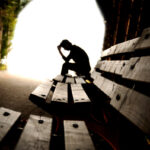
Similar to lethargy is despair. It’s a huge pitfall, emotionally and cognitively. When we’ve been dealing with various forms of “lockdown” (depending where you are; it’s been especially strict in Los Angeles County) and then are told that the COVID numbers are still climbing exponentially (as we were earlier this month in November, 2020), that can have a despairing effect that nothing that we collectively do is “good enough” to address the problem. This is especially frustrating for gay men, because we all in the LGBT community are told that we are “not good enough” our whole lives from politicians, media, and parents/teachers/coaches/peers, and hearing it yet again now for different reasons is not welcome.
But as President Franklin D. Roosevelt (“FDR”) said in a speech at the height of the Great Depression in the 1930’s, “Let me assert my firm belief, that the ONLY thing we have to fear, is fear itself.” He said that about a disastrous economic state, and we can say it now. Instead of looking around and enumerating the reasons COVID has been disastrous (and they are there even without having to look hard), that focus doesn’t help. What does help is how we individually – every one of us – develop truly Adaptive Coping Measures – which, if everyone does that, will have an impact on a larger scale. I wear a mask everywhere outside my home. I sanitize my hands frequently when out in public. I social distance while standing in lines or anywhere in public. I avoid indoor, close-proximity conversations. I avoid even small groups. I wash my hands when I get home. If we all did this, the numbers would go down. If the pharma companies can get the right formula (which, increasingly, they are), then we will have a vaccine available, and I’ll drop what I’m doing to go take it when it’s available (probably through my very friendly local pharmacist, Fred).
While there are plenty of so-called “reasons” to despair that overall conditions are shitty and likely to remain so for a while, not much good comes of a despairing outlook. Instead, I’m hopeful that everyone working creatively (and gay men, in particular, are stereotypically noted for their creativity!) can find new ways of doing things, we’ll be better. If a new President Biden can put forth a more sound Federal government, nationally-coordinated response, we’ll be better. If Big Pharma can invent and distribute a reliable, effective, enduring vaccine, we’ll be better. If we can reframe our outlook from the selfish to the mutually-supportive on a local, state, national, and global level, we’ll be better. There is much more to be hopeful about than to despair about, and that’s actually always true. And that’s an important framework in cognitive therapy that is useful for boosting our mood, relationships, and functioning.
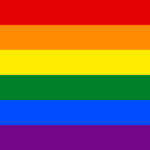
In philosophy, the dark side of “pride” (not the good kind of pride, like LGBT Pride celebrations) is being “above possibility” (or religious folks would say, “above God”), whereas despair is being “below possibility” (or religious folks would say, “below God’s redemption”, which to them, nothing is, with confession and forgiveness). It is the pride of arrogance when Right-wing government says, “Oh, let them die; let’s get the economy working again for the profits,” and it’s the “sin” of despair to say that any situation is completely hopeless and not worthy of a fight, or at least resistance. LGBT people, including gay men, have been the experts throughout history of either fighting back against oppression, or at least providing strong resistance. And this can be even through the mind-set that we adopt, even privately in our own heads, but preferably publicly, to motivate and organize others to the cause.
Every time we do something, in our thoughts or in our behaviors, that supports rising to the occasional and coping, instead of giving up in despair, we are embracing adaptive coping strategies that will see us through in the long run. So, we want to avoid the maladaptive coping strategies and behaviors that end up doing more harm than good (substances, lethargy, despair).
One of my favorite inspirational/motivational books to use in my practice is The Success Principles by Jack Canfield. In that, Canfield says that “Event + Response = Outcome”, and this speaks to how our own actions can affect the impact from the things that happen to us. We can’t control the “event”, such as the advent of the global COVID-19 pandemic, and but we can control our response to it, and that will give us a better outcome over time. This equation is true for all unfortunate events, such as job layoff, relationship breakup, health challenge, financial setback, business mishap, mental illness, natural disaster, etc. It’s always refreshing to know that our adaptive coping response can influence the outcome, even from an event that we didn’t want or anticipate.
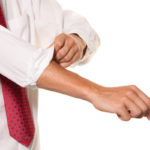 Preparation for the Recovery
Preparation for the Recovery
While in the midst of the COVID pandemic, including the ups-and-downs of more and less restrictive public policies to contain the prevalence of the disease (and deaths), it’s important to consider (for the survivors) what “life beyond COVID” will be like. Back during the Great Recession, I wrote an article about “preparing for the recovery” (here) and it’s time to reiterate some of that. We want to position ourselves so that the thoughts, behaviors, and strategies that we take now set us up for success then. Even if we don’t yet know when the “then” will be, we do know “that” it will be. And if progress with improved government policy and pharmacological interventions (such as the vaccine candidates) are successful, that shouldn’t be too long, perhaps as early as the first quarter or half of 2021.
What do you want your post-COVID life to look like? Try to imagine it. What about work? What about your relationships? What about your social life? What about your health? What about your finances? Now, think about what you can do now to prepare.

The post-COVID life, for all of us (world-wide), will be a combination of what life is like for us as individuals (couples, families) and as communities (neighborhoods, extended family, state/national/global groups). The recovery will involve adaptive changes for us as individuals and in the broader society, much as the Civil War, World War I, the Great Depression, World War II, the Atomic Age, the Space Age, and the Internet Age have all affected Americans in many social and occupational ways. (“Downton Abbey” on TV did such a poignant job in depicting how World War I changed life for a family in England, for example, in social and political ways.) The impact and aftermath of World War II did a lot to inspire the gay community in the post-war era, especially with the rise of the Leather Community. The post-war oppression (the “Red Scare”) of the late 1940’s and 1950’s that oppressed the LGBT community in many ways led to the explosive response by the time of Stonewall in 1969, but it has been theorized that much of Stonewall was influenced by the existential angst in the Cold War era that we weren’t going to put up with oppressive crap in our own communities when we could be nuked out of existence at any moment. And the American men (and women) who put their lives on the line for four years during World War II weren’t about to be told how to live when they saw their buddies blown up on battlefields or they almost were themselves. With that much collective sacrifice, these folks wanted the reward of a life with dignity from the country they fought very hard to defend. So, one wonders what the long-term social and political effects of the COVID era will be, but they will be something that is at least “informed” by what’s going on right now. (My guess is that it will have something to do with The People’s expectations from government, and who was there to help, and who left us all to swing in the wind.)
They say that “forewarned, is forearmed,” and if you can envision the Ideal Life for you (personally and professionally) for your post-COVID life now, during COVID, then you are setting yourself up for success then.
In social work, we teach the “person-in-environment” theory; that no one is an island, but who we are is understood in the context of the time, place, culture, and social situation we are living in. The individual influences the environment, and the environment influences the individual, regardless of what’s going on in our intra-psychic makeup and personality structure. It’s the same with COVID; we all have a part to play in containing the pandemic, and our environment imposes on us things like restrictions that individuals must formulate an adapting coping response to (such as many personal sacrifices, and their impact).
My concern, in part, about the post-COVID era is that we are all going to be so subjectively traumatized by this experience that it inhibits us from having the life we would have had, had COVID never happened. We see this often: someone has been traumatized by another, and they, out of fear, “hide” from life in an effort to protect themselves. They shrink from the limelight, because if no one can find you, no one can hurt you. While this is somewhat of an adaptive survival instinct, it can be a high price to pay. People who have been sexually abused, for example, might generally avoid even consensual, pleasurable sexuality in order to “feel safe,” and yet look at that cost.
How to Recover from COVID Trauma
In response to trauma, we have to reclaim our right to the life we would have had, had the trauma never happened. In this way, we don’t “negotiate with terrorists”; we don’t let the trauma take away any more than it already has. With COVID, we need to double-down and re-commit to the dreams, goals, and aspirations we always had, but perhaps a little wiser about committing to electing politicians that help people instead of corporations, support science instead of “alternative facts”, and support working people in communities, not oligarchs with Swiss bank accounts. And maybe look into the wisdom of our approach to the global treatment of animals in order to prevent zoological transmission of animal diseases into human populations.

Resilience and reclaiming your life after trauma, however, doesn’t mean invalidating the very real feelings of fear, frustration, loss, and sadness we have all endured during this COVID era in some way. It’s important to recognize, acknowledge, validate, and empathize with the suffering all this has caused real people, whether we know them personally or not.
And the people who have survived some of those previously-mentioned historical traumas, whether they are still with us as living witnesses or not, would be able to tell us that while life can have its traumas – whether it’s despotic political regimes, wars, natural disasters, or pandemics – that life is worth standing up for, investing in, and ultimately, enjoying.

It takes self-awareness, mindfulness, self-reflection, and careful attention to avoid the pitfalls of “easy answers” to difficult problems. But our elders among us know that they endured, and we will, too. As so many gay men learned during the AIDS crisis, which so disproportionately affected us, Mother Nature has a way of reminding us who’s boss and humbling us that despite inventions in technology, gadgets, and new “toys” and miracles of the Modern Age being invented every day, people still live in communion with other people, other animals, and all of Nature’s Kingdom.
If COVID teaches us anything, it’s that. We would be wise to keep that in mind, long after the sting of the current all-too-real hardships are resigned to history.
If you would like support for strengthening your own adaptive coping in this COVID era, or anytime, or help with your relationship, career, or any other personal issue, please reach out for help. Call or text 310-339-5778, or email Ken@GayTherapyLA.com, for more information or to schedule an online appointment.


